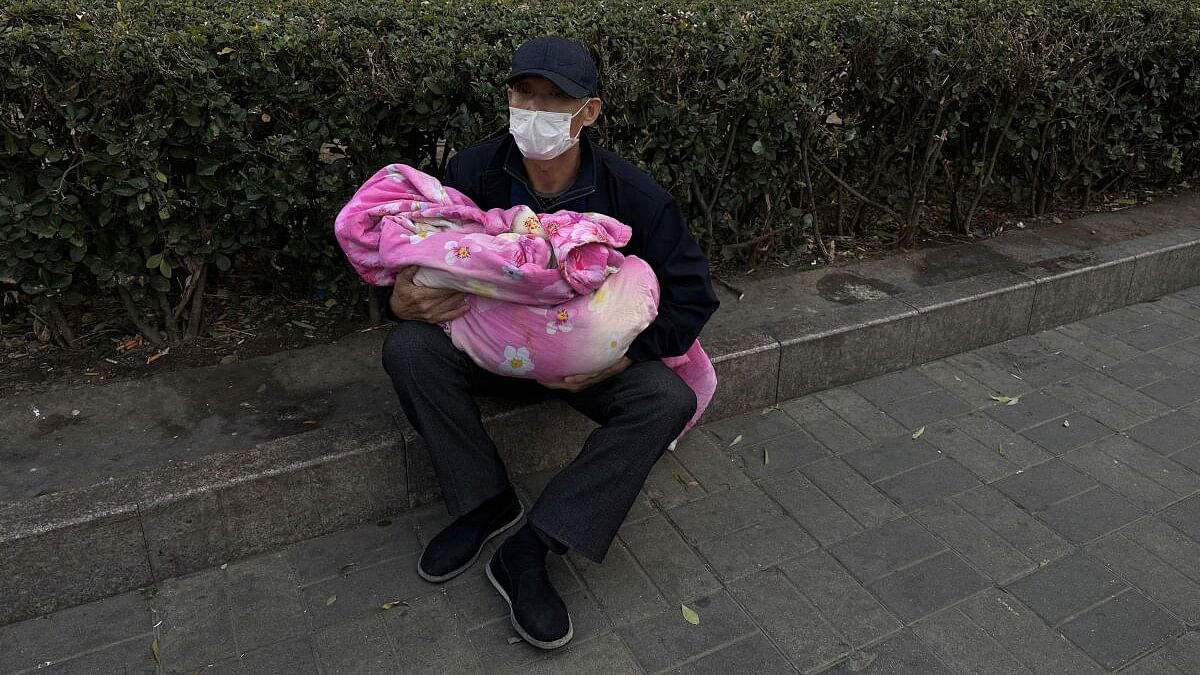
A man carrying a child sits outside a children's hospital in Beijing, China November 27, 2023.
Credit: Reuters Photo
The spread of an “influenza-type illness” in northern China, mainly among children, since October has caused concern in other parts of the world, though the Chinese health authorities have said there is nothing to worry about.
The World Health Organisation (WHO) has said that China has not detected any “unusual or novel pathogens” and that the increase in respiratory illnesses was due to “multiple known pathogens”.
The WHO had sought information on the “clusters of undiagnosed pneumonia in children” in China.
It now seems to be of the view that these increases are “not unexpected, given the lifting of Covid-19 restrictions, as similarly experienced in other countries,” though some of them are earlier in the season than historically experienced.
The concern rose after China’s National Health Commission (NHC) reported a rise in several respiratory diseases, in particular influenza, Covid, mycoplasma pneumoniae, which is a common bacterial infection affecting younger children, and respiratory syncytial virus (RSV).
The reports from China had sent out red signals all over the world because of the Covid experience, which turned out to be the biggest epidemic killer in the last 100 years. China’s lack of transparency about the disease was considered to be a main cause for the spread of the disease in other countries.
Questions about transparency have been raised now also. This time, too, China’s heath authorities did not report to the WHO about the surge in the number of pneumonia cases.
It was through media reports that the WHO became aware of the new infections. Though China found out that the rise in infections was caused by known pathogens, it had the duty to keep the WHO informed about it.
Some other countries, including the UK and the US, have also seen similar surges in flu-like illnesses after the lifting of pandemic restrictions. It has been explained that the surge happened in China because this is the first winter after the Covid lockdown and immunity may be low because of the lengthy lockdown.
But there is also a view that a clear diagnosis is not possible because information is still insufficient. Countries, especially those which were seriously impacted by Covid, are closely monitoring the situation. The WHO has also said it is doing so and is in close contact with national authorities in China.
In India, the central government has told all states and UTs to undertake a review of public health preparedness and follow existing guidelines and protocols on disease surveillance.
Though there is no need for alarm, there is the need for caution. That is one important lesson the pandemic has taught all countries.